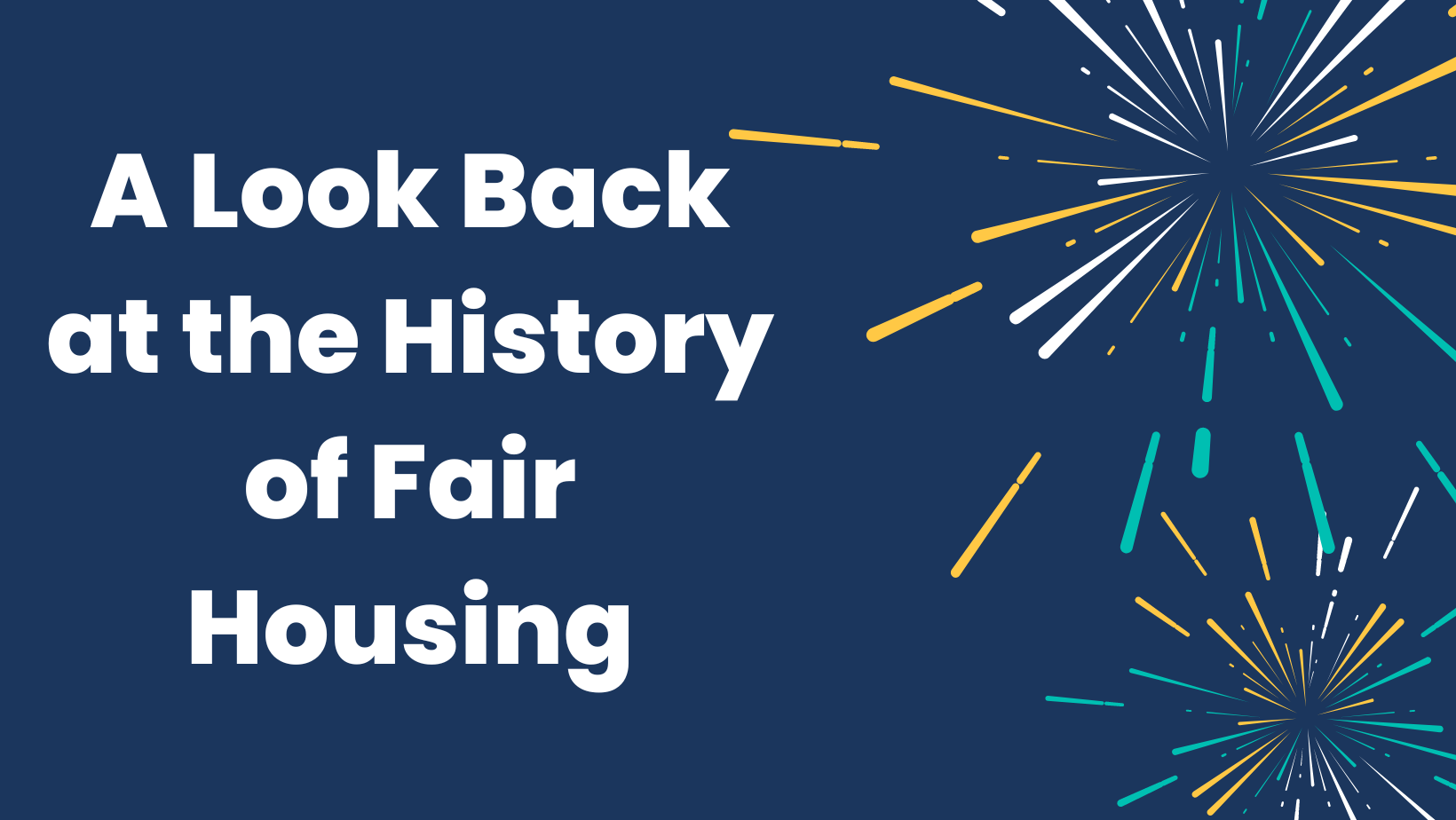Did you know that April is National Fair Housing Month? This year marks the 56th anniversary since the passage of the Fair Housing Act on April 11th, 1968. The landmark civil rights law signed by President Lyndon B. Johnson made discrimination in housing transactions unlawful. Fair housing is a cornerstone of civil rights, embodying the principle that everyone should have equal access to housing opportunities, regardless of race, color, national origin, religion, sex (including gender identity and sexual orientation), disability, and familial status. In Connecticut, our state fair housing law also protects people on the basis of ancestry, marital status, age, lawful source of income, veteran status, and status as a victim of domestic violence. The evolution of fair housing is a testament to the struggles and triumphs of countless individuals and communities striving for justice and equality. In honor of Fair Housing Month, let’s explore the milestones and movements that have shaped fair housing over the years.
The Early Struggles
The roots of housing activism can be traced back to the early 20th century when discriminatory practices were rampant across the United States. At this time, racially restrictive covenants, redlining, and discriminatory lending practices were commonplace, systematically denying Black Americans access to housing in certain neighborhoods and keeping boundaries between white and Black communities. The Great Migration of African Americans from the South to the North during the early 20th century further highlighted these inequalities, as overcrowding and segregation in urban areas became a stark reality.
Legal Landmarks
The fight for fair housing included key legal battles. One of the seminal moments came with the Supreme Court’s ruling in Shelley v. Kraemer (1948), which declared racially restrictive housing covenants unenforceable. This decision marked a significant blow to the legal underpinnings of housing discrimination although many who challenged continuing race-based housing patterns were often met with resistance, hostility, and even violence. Advocates recorded additional victories in the courts following the enactment of the Civil Rights Act of 1964 and the Fair Housing Act of 1968.
Civil Rights Movement
The Civil Rights Movement of the 1960s played a pivotal role in advancing fair housing. Activists like Martin Luther King Jr. and organizations like the NAACP and the National Urban League spearheaded campaigns to dismantle segregation and secure equal housing rights for all Americans. Their efforts culminated in the passage of the Fair Housing Act, a turning point that provided a tool to confront housing discrimination as it occurs.
Challenges and Progress
Despite this progress, challenges on the path to achieving the goals of fair housing persist. Even following the Fair Housing Act discriminatory practices continued in more subtle ways, perpetuating housing disparities. Efforts to combat housing discrimination expanded to address issues like accessibility for people with disabilities and combatting predatory lending practices. Grassroots movements, advocacy groups, and legal advocates played crucial roles in pushing for enforcement and accountability.
Fair Housing Today
The landscape of fair housing continues to evolve today. Advances in technology and data analysis have shed light on patterns of discrimination, enabling targeted interventions and enforcement actions, but also create new challenges to ensuring fair housing. Unfortunately, systemic inequities still exist, underscoring the ongoing importance of vigilance and activism in the pursuit of fair housing for all.
Moving Forward
The history of fair housing is one of struggle, resilience, and progress. From the early battles against overt discrimination to the current efforts to address systemic inequalities, the journey to housing equality has been marked by both triumphs and setbacks. As we reflect on this history for Fair Housing Month, we are reminded of the enduring imperative to uphold the principles of fairness, justice, and inclusivity in housing policy and practice. At the Connecticut Fair Housing Center, we believe that the legacy of those who fought for fair housing will guide us forward in the ongoing quest for equality and opportunity for all.


